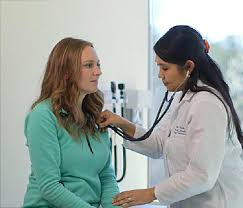
A member of the American College of Emergency Physicians, Dr. Zachary Lutsky is currently an attending physician at the Santa Clara Medical Center. With almost two decades of experience in emergency medicine, Dr. Zachary Lutsky has treated a variety of emergency medical conditions, including strokes, , heart attacks, and traffic injuries, as well as severe fever in children.
Fever occurs when the body temperature rises above the normal range (normal being between 97.4 and 99.6 degrees Fahrenheit). Normally, proper hydration, OTC medication, and enough rest calm most fevers within three to four days. However, there are some instances when immediate medical evaluation and special treatment is required. Seek immediate medical care if:
1. The child is a newborn.
2. The child’s fever is accompanied by seizures, regardless of age.
3. The child is between 3 to 6 months of age and has a rectal temperature reading 103 degrees Fahrenheit or higher, or fussiness along with a rectal temperature anywhere above 99.6 degrees Fahrenheit.
4. The child is between 6 months and 2 years of age and has a temperature of 102 degrees Fahrenheit or higher accompanied by cough or diarrhea that persists for more than a day.
5. The child is more than 2 years of age and has a fever accompanied by a painful and stiff neck, vomiting, and severe headache. This can be a sign of meningitis.
6. A fever occurs after a child has been exposed to hot temperatures. This can be a sign of heatstroke.



You must be logged in to post a comment.